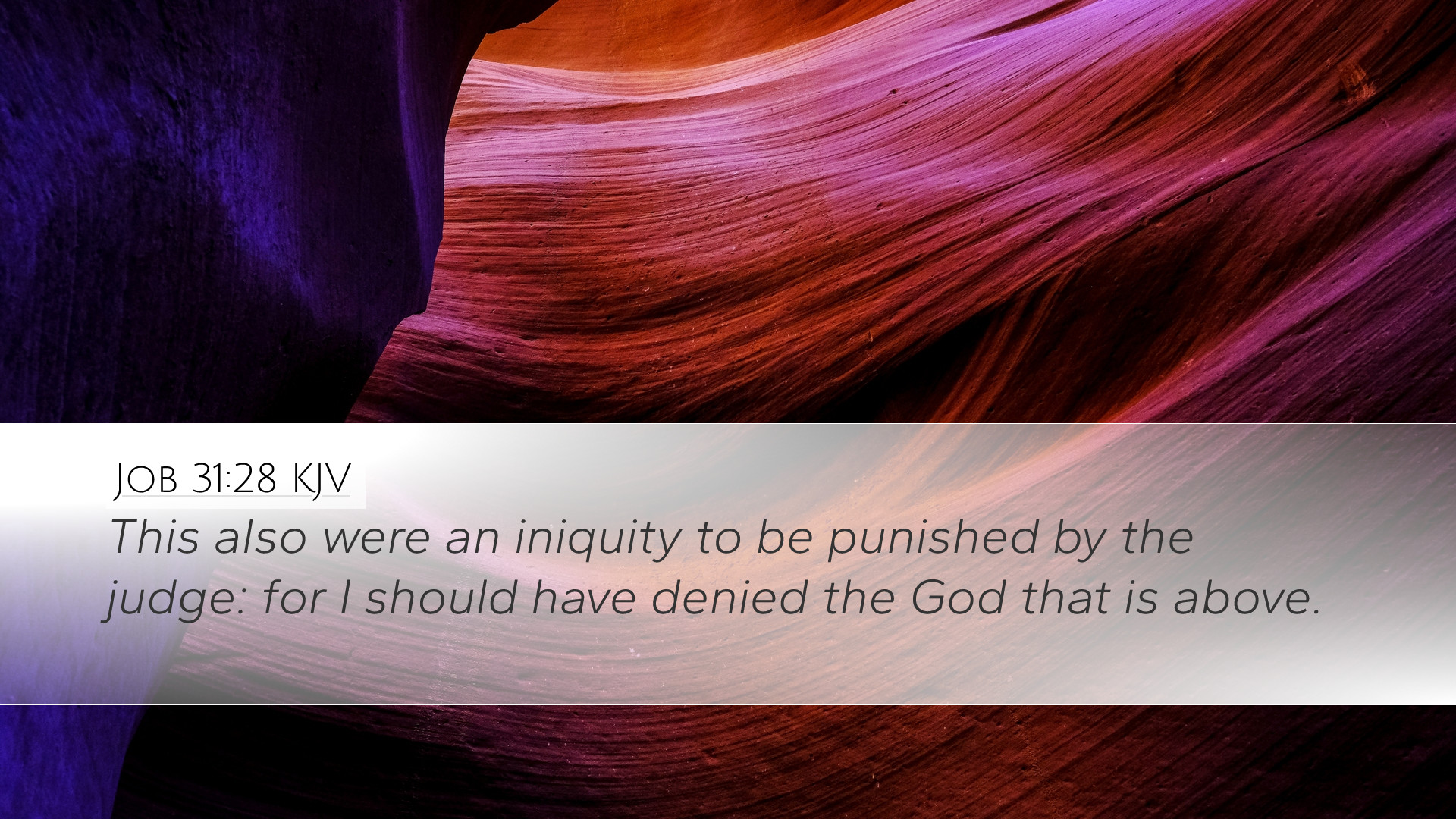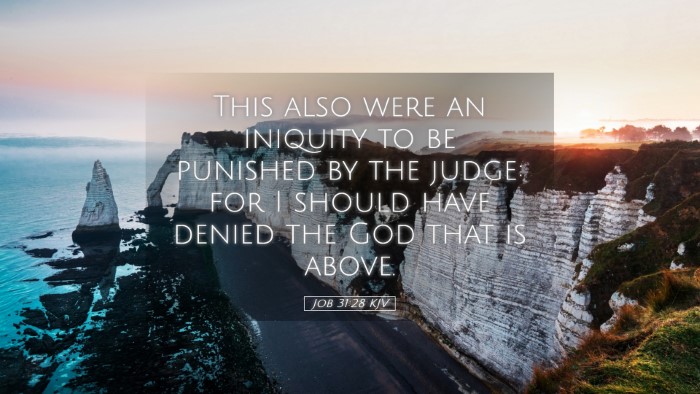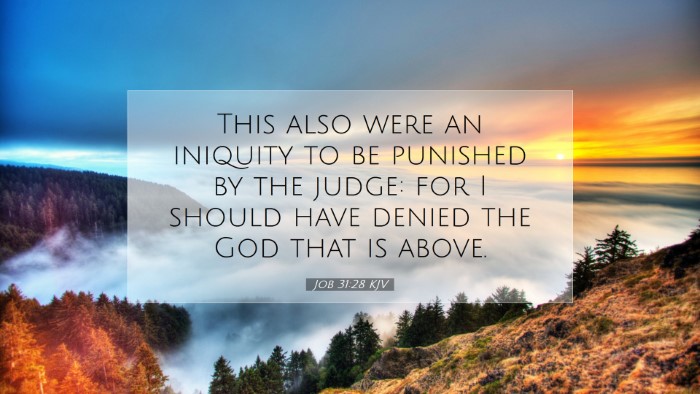Old Testament
Genesis Exodus Leviticus Numbers Deuteronomy Joshua Judges Ruth 1 Samuel 2 Samuel 1 Kings 2 Kings 1 Chronicles 2 Chronicles Ezra Nehemiah Esther Job Psalms Proverbs Ecclesiastes Song of Solomon Isaiah Jeremiah Lamentations Ezekiel Daniel Hosea Joel Amos Obadiah Jonah Micah Nahum Habakkuk Zephaniah Haggai Zechariah MalachiVerse
Job 31:1 Job 31:2 Job 31:3 Job 31:4 Job 31:5 Job 31:6 Job 31:7 Job 31:8 Job 31:9 Job 31:10 Job 31:11 Job 31:12 Job 31:13 Job 31:14 Job 31:15 Job 31:16 Job 31:17 Job 31:18 Job 31:19 Job 31:20 Job 31:21 Job 31:22 Job 31:23 Job 31:24 Job 31:25 Job 31:26 Job 31:27 Job 31:28 Job 31:29 Job 31:30 Job 31:31 Job 31:32 Job 31:33 Job 31:34 Job 31:35 Job 31:36 Job 31:37 Job 31:38 Job 31:39 Job 31:40

